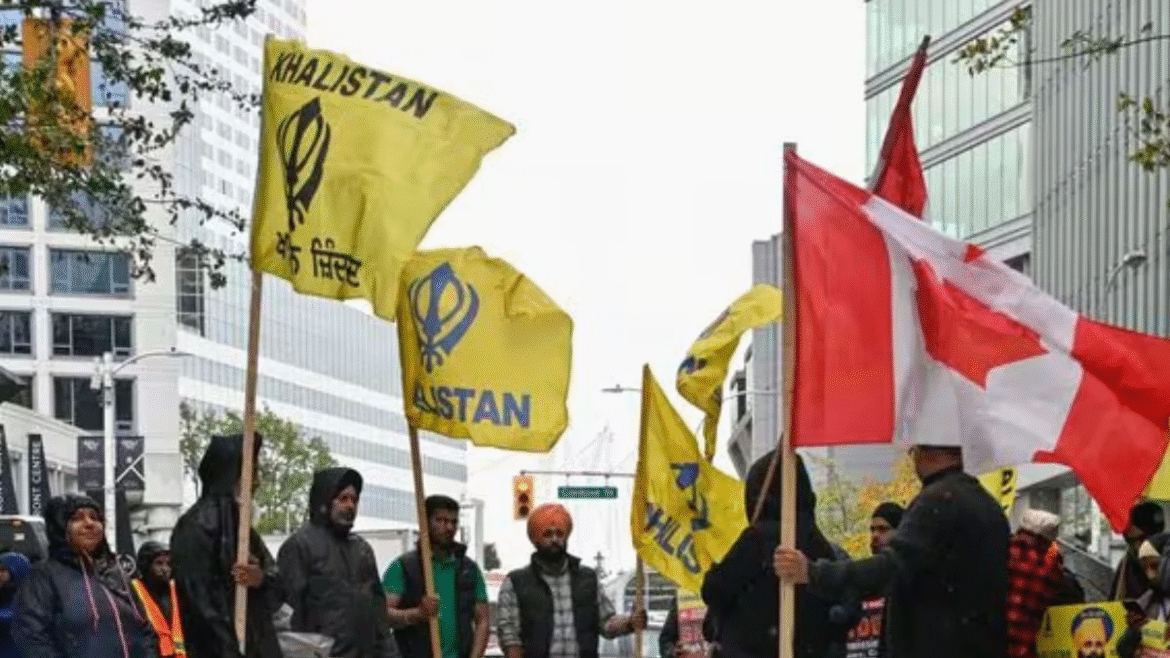AI Generated Summary
- In another case, Federal Justice Guy Regimbald in Vancouver rejected the appeal of Kanwaljit Kaur, who argued that her support for SFJ and participation in the referendum exposed her to irreparable harm if deported.
- The dismissals, confirmed through federal court records for 2025, largely involved individuals with ties to Sikhs for Justice (SFJ), an outlawed group in India, or those who presented voter IDs for the so-called Khalistan Referendum.
- The rulings reflect a consistent stance that claims based on pro-Khalistan activism in Canada must meet strict thresholds of credibility and risk assessment.
Canadian federal courts have dismissed at least 30 appeals this year from Indian nationals challenging deportation orders or refusals of refugee status, with applicants citing alleged persecution for supporting the Khalistan movement. Only four appeals were upheld, underscoring the judiciary’s skepticism toward claims linked to separatist activities.
The dismissals, confirmed through federal court records for 2025, largely involved individuals with ties to Sikhs for Justice (SFJ), an outlawed group in India, or those who presented voter IDs for the so-called Khalistan Referendum. Applicants argued such associations placed them at risk of persecution if returned to India. However, in most cases, judges determined that the evidence was speculative or insufficient.
Recent Rulings Highlight Judicial Approach
The most recent case involved Pardeep Singh, who sought a judicial review of his removal order. Singh entered Canada on a spousal work permit in February 2023, which expired in late 2024. Days after his permit lapsed, he filed a refugee claim. His evidence included social media posts and affidavits from family members supporting his pro-Khalistan activities. On September 6, Justice Avvy Yao-Yao Go dismissed the motion in Toronto, ruling the materials inadequate to justify a stay.
In another case, Federal Justice Guy Regimbald in Vancouver rejected the appeal of Kanwaljit Kaur, who argued that her support for SFJ and participation in the referendum exposed her to irreparable harm if deported. Regimbald ruled on August 27 that such claims were speculative and insufficient to demonstrate she was of “high profile” interest to Indian authorities.
Broader Pattern of Rejections
Earlier in August, a Montreal court upheld decisions denying asylum to Amandeep Singh and his partner, Kanwaldeep Kaur. Both had amended their applications to claim newfound support for Khalistan during their stay in Canada, presenting protest photographs and voter cards. Federal Justice Benoit M. Duchesne dismissed their arguments as disingenuous, affirming earlier rulings from Canada’s Refugee Protection Division and Refugee Appeal Division.
Limited Success for Applicants
While a handful of appeals have been successful — just four this year — the overwhelming number of dismissals signals a judicial trend: Canadian courts are reluctant to recognize Khalistan-related claims as grounds for refugee protection. Judges have repeatedly emphasized the lack of credible evidence proving that mere association with SFJ or possession of referendum materials would place individuals at risk of targeted persecution by Indian authorities.
The rulings reflect a consistent stance that claims based on pro-Khalistan activism in Canada must meet strict thresholds of credibility and risk assessment. For most applicants, federal judges have concluded that threshold has not been met.




